
We co-worked in WeWork Bangkok and accidentally broke part of a glass whiteboard. When we reported it and got a bill, we requested itemized billing and found something interesting. It’s clear that WeWork’s culture is broken from the boardroom all the way down to the boards in the room.
So a couple of disclaimers are necessary at the outset. First of all, I have no particular ax to grind with WeWork. On the contrary, I’ve been with them for 18 months (and recently renewed for an additional 12), had a two-seat dedicated room at WeWork Shenzhen for a year, and have also worked in different WeWork locations in Singapore and London. As a small influencer, I even hosted two networking events and promoted WeWork with no compensation. They didn’t need to pay me. As an early WeWork customer, I was happy and loved my coworking space.
It’s also important to note that I believe that, in general, we should pay for breaking things that don’t belong to us. While breaking a glass in a restaurant versus breaking a vase in an antique shop are two totally different things, it goes without saying that personal responsibility is important. But in a business environment, whether in a traditional office or coworking space, it’s particularly important for both sides to be fully transparent and honest when a repair needs to occur. Only then can there be a satisfactory and professional outcome.
Those disclaimers aside, let’s get to the story.
Table of Contents
We Worked Together at WeWork
I was in Bangkok recently for the annual DCBKK conference for members of a location-independent community that I am part of, the Dynamite Circle. Yes, there were talks and meals like at many conferences, but this featured conversation and camaraderie with business owners at the top of their game in many different sectors.
Understandably, I wanted to gather a few of my friends to brainstorm as well as share ideas in growing our online businesses. So, being a WeWorker, I booked a meeting room at a WeWork space in Bangkok. The mastermind session went very well and we managed to share some great business ideas.
We Broke the Glass Whiteboard
The space was extremely confined. We booked a 6-person room, and it turned out only four of us were are able to fit in. The gap between someone’s back and the glass whiteboard was less than 30 cm (about a foot) as you can see in the picture below. And so what happened is that my friend Bowen casually tilted his chair backward and leaned up against the whiteboard behind him (he thought it was just a wall) and he heard a crack. Oh no, it wasn’t a wall, it was a whiteboard that’s made of glass!!
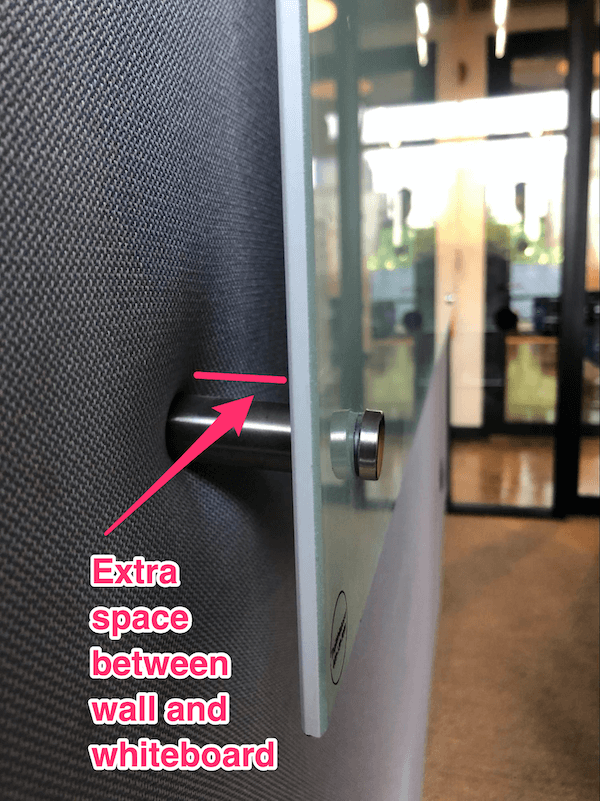
We Reported to the WeWork Community Team
After realizing the glass whiteboard was broken, we immediately headed down to the ground floor and informed the community team about it. We were upfront about the incident as we understood we had a personal responsibility to contribute to the repair or replacement of the whiteboard. Hence, we did everything we could to cooperate with WeWork Thailand in resolving the issue without any hesitation. I was told I would be kept updated about the evaluation of the damage and compensation.
And one month later…
We Got a $1,219 USD Bill
On November 18, 2019, I received another email from WeWork.
Note that between October 15 and November 18, I didn’t receive any of their updates on the incident, not to mention how their decision was made. It’s just a notice first, and then a bill like this:
A whopping 36,861.50 THB (Thai currency)!!
For those unfamiliar with the value of Thai Baht, the amount was equivalent to $1,219.37 in USD, give or take the ever-changing exchange rate.
Another thing that’s worth mentioning here is that there was no itemization and no explanation of the damage in relation to terms and conditions, just a “nice” invoice. I was in a bit of a shock as I shared the bill with my friend Bowen, who was having none of it. He took over from there.
We Called the Glass Whiteboard Provider
The first thing Bowen did was make a visit to that WeWork space and spoke to the community manager in person. Bowen was allowed to visit the room for inspection and he took a few pictures of the damaged whiteboard. Fortunately, he found out that the manufacturer ThaiWhiteboard and its contact numbers were stamped on the whiteboard, and he contacted them to check the price.
Long story short, it turns out that the total cost of the whiteboard, including tax and installation was 15,000 Baht, well less than half of the 36,000 we were billed by WeWork Thailand.
We Requested a Bill Breakdown
The community manager then suggested that my friend speak to the operation team as they were in charge of the overall facility and the invoice. When the operation manager arrived, my friend shared his findings and requested for the itemized bill.
Instead of helping my friend, the operation manager rudely dismissed it as a question of confidentiality and claimed that the invoice amount of 36,000 Thai Baht was correct and that the high price was due to the product being imported from overseas. She also insisted that their glass whiteboards were made of ultra high-quality glass, which was different from the typical glass whiteboards used in most offices. Unbelievably, the manager even went on to accuse my friend of deliberately misleading the glass whiteboard manufacturer in order to obtain a lower quote.
Up to this point, the operation manager had refused to make any effort to verify facts or check with their team. She just continued to refuse and dismiss whatever findings my friend shared with her, even to the extent of raising her voice and making aggressive hand gestures, in an open area in front of other witnesses.
Knowing that the discussion would go nowhere, my friend called the vendor directly on speakerphone and confirmed the aforementioned price of 15,000 Baht. The operations manager, thus unexpectedly chastened and exposed, quietly agreed to speak with their construction team to get us an itemized bill.
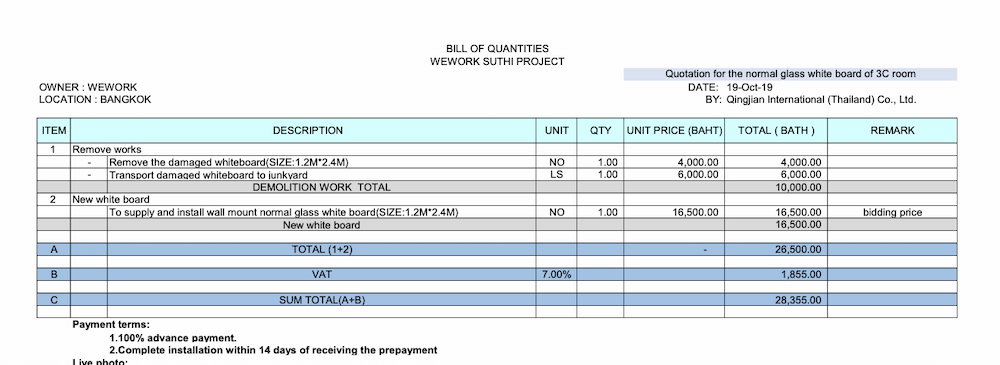
We Found Something Very Interesting
The itemized bill was absolutely… interesting!
First, they charged 10,000 Baht (about $330 USD) for removal and transportation fees in contrast to the actual rate quoted from the vendor, 2,000 Baht, which is an 8,000 Baht difference from what WeWork billed us. What was WeWork playing at?
Then a follow-up invoice indicated a “management fee” of 8,500 Baht (about $280 USD), which filled in the gap between the bill above and the original 36,861. But I thought my friend Bowen, who had done all the legwork anyway, should probably pay himself that management fee! Jokes aside, this was a bit absurd.
As for the actual glass whiteboard, the figure is much closer to what we had researched, at 16,500 Baht, but this amount was still inexplicably higher than what the vendor had quoted by 1,500 Baht. But hey, let’s celebrate a small win!
My friend is continuing to correspond by email in what I consider a futile attempt to make WeWork Thailand see reason, and have them answer questions such as:
- Why is WeWork charging five times the market rate for the removal and transporting of a whiteboard?
- Why is WeWork charging nearly 50% of the cost of the replacement item for “management fees”?
- Why aren’t these expensive glass whiteboards insured?
Final Thoughts
As of the writing of this article, the issue hasn’t been resolved. But it’s a perfect example of why WeWork is broken at the most basic level, and why the “We” so touted by the now-disgraced Adam Neumann is nothing but an empty promise. Indeed, perhaps an instructive lesson can be taken from the $6M that Neumann was recently forced to return after secretly trademarking the “We” brand and then selling it to his own company. It seems that other companies have picked up on the creative accounting that Enron pioneered a generation ago and Goldman Sachs turned into an art form leading up to the 2008 financial crisis.
As we wait for the final resolution of this incident, I have a few thoughts:
1. Why did WeWork Thailand attempt to profit from this unfortunate incident by charging us an irrelevant management fee (undisclosed in the first invoice), heavily marking up the removal and transportation fee, and initially refusing to provide an itemized bill which they claimed was “confidential information”? We’d expect a globally-recognized brand like WeWork to do their level best to help their clients in resolving an issue, and instead what we got is a company that attempted to take advantage of a customer’s misfortune. This made us feel even worse given that we were very upfront and cooperative about the incident.
2. Why, given all the negative press currently surrounding WeWork, is there such tone-deafness in what must be a routine matter? Is this the sort of story WeWork is looking to cultivate? Is this what they want people to hear about? “Lean against one of our whiteboards in a meeting and you might get a high bill with no explanation!” When you have “We” in your company name you’ve placed a special spotlight on yourself to try to work together, not against, your clients.
3. Why was there such a lack of basic professionalism on the part of WeWork Thailand? Rather than calling to ascertain the facts of the case, or presenting a copy of the terms and conditions of the room rental in conjunction with an itemized bill, WeWork chose to send a single line item bill with no further explanation. There’s an arrogance and lack of empathy that runs through this action that speaks to the larger company culture.
4. Why did the operation manager insist on being publicly rude to my friend, including raising her voice and using threatening hand gestures? Is there no irony in calling oneself a “WeWork manager” while failing to understand that “community” isn’t built on escalating an interaction simply because someone who received a bill asked for an itemization?
However the matter is resolved, it’s clear that WeWork’s culture is broken from the boardroom all the way down to the boards in the room.
As an aside, I want to thank my friend Bowen for putting his time and effort into this WeWork incident and never giving up until we get the truth. It’s his attitude that encouraged me to write this article. Thanks mate!


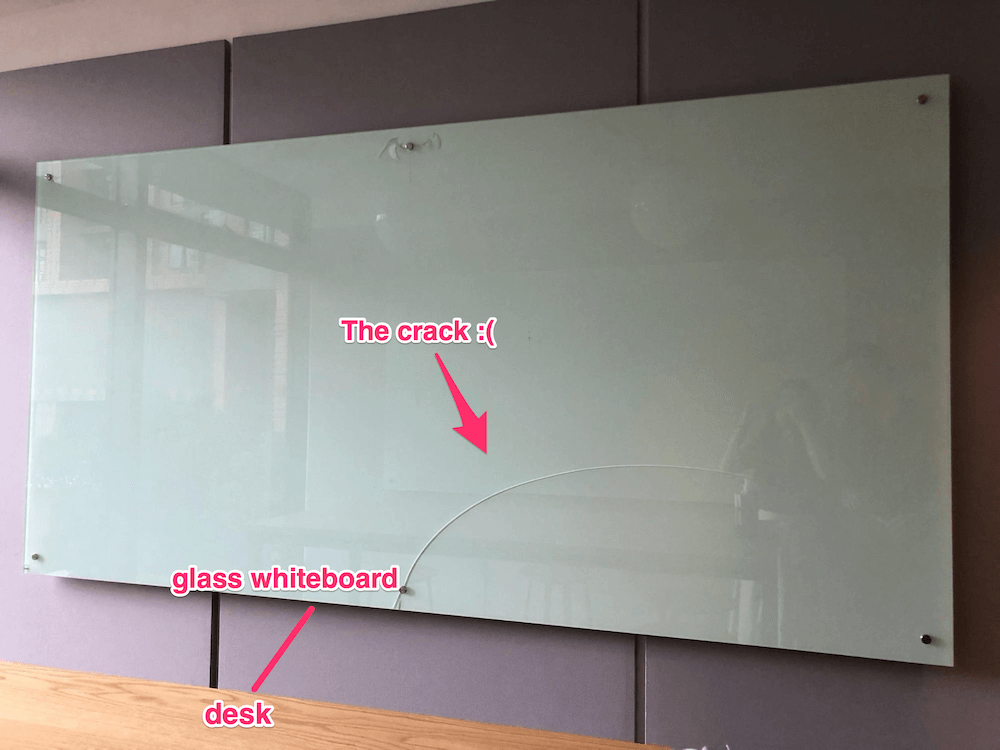
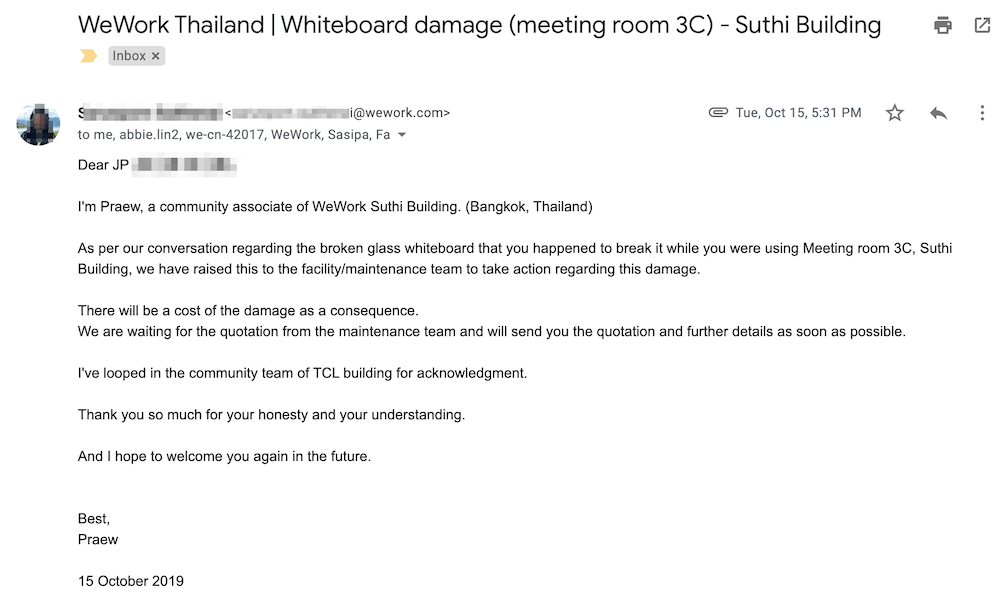
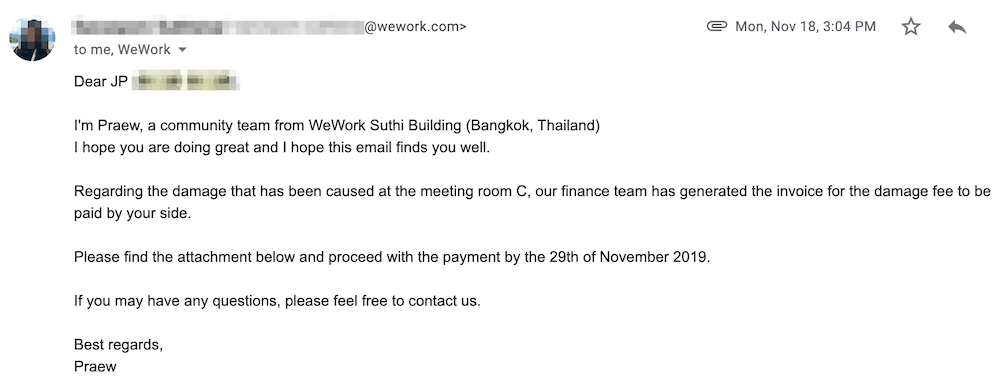
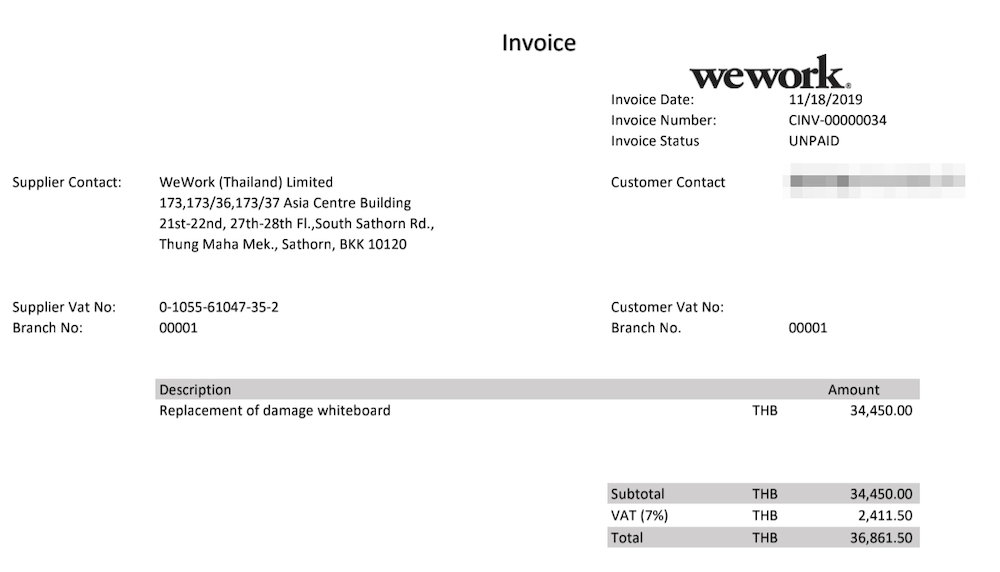
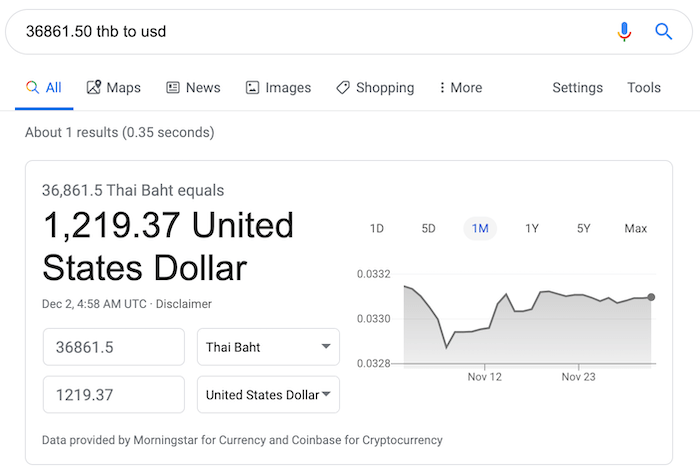
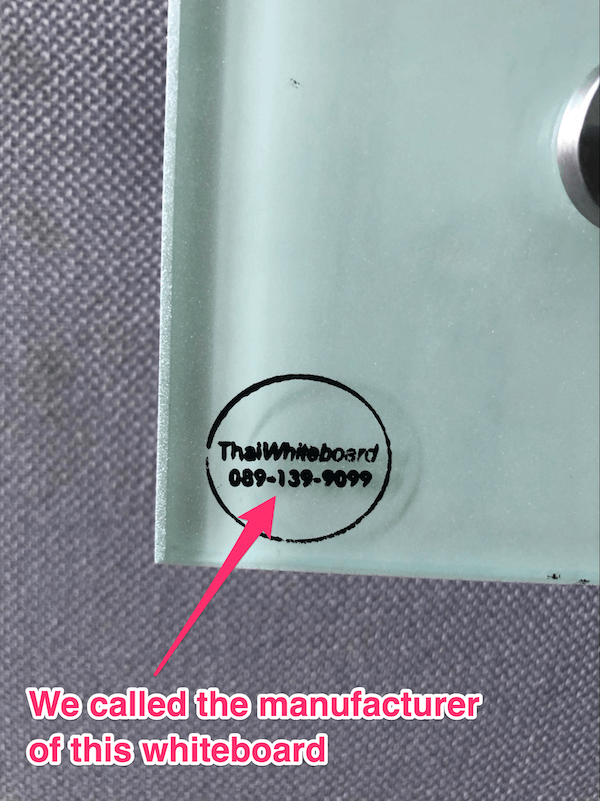
No share button on this!
A Fish rots from its Head
Boohoo.
This kind of culture definitely is top down, and shows bad management on part of the We brand. :/ You guys seem to have taken all the right measures to fix the issue. I hope it gets fixed soon!
Sorry you had a bad experience. Sounds like WW definitely took advantage of this situation in a way that was not transparent. This type of thing seems to have increased as WW financial challenges have increased.